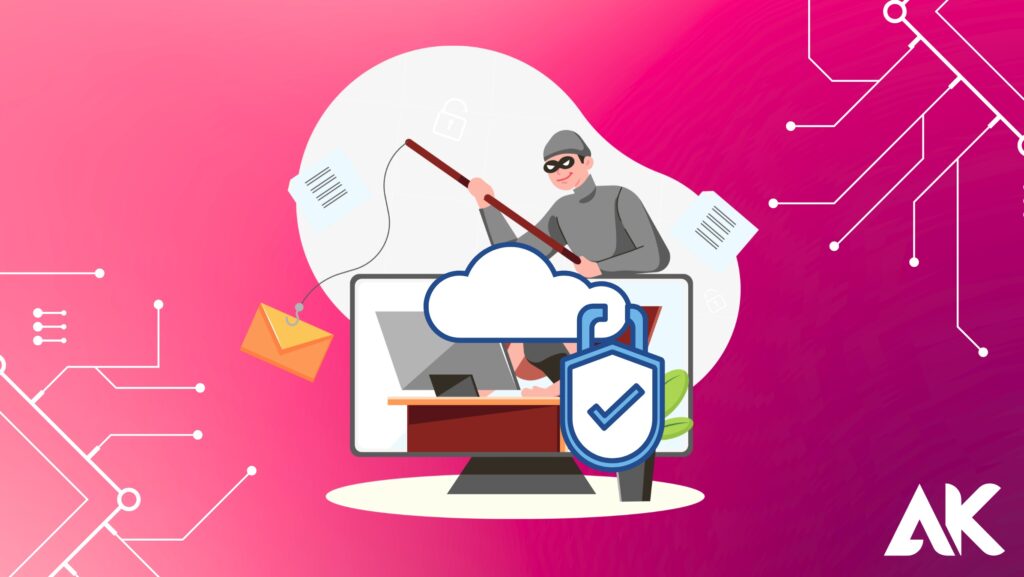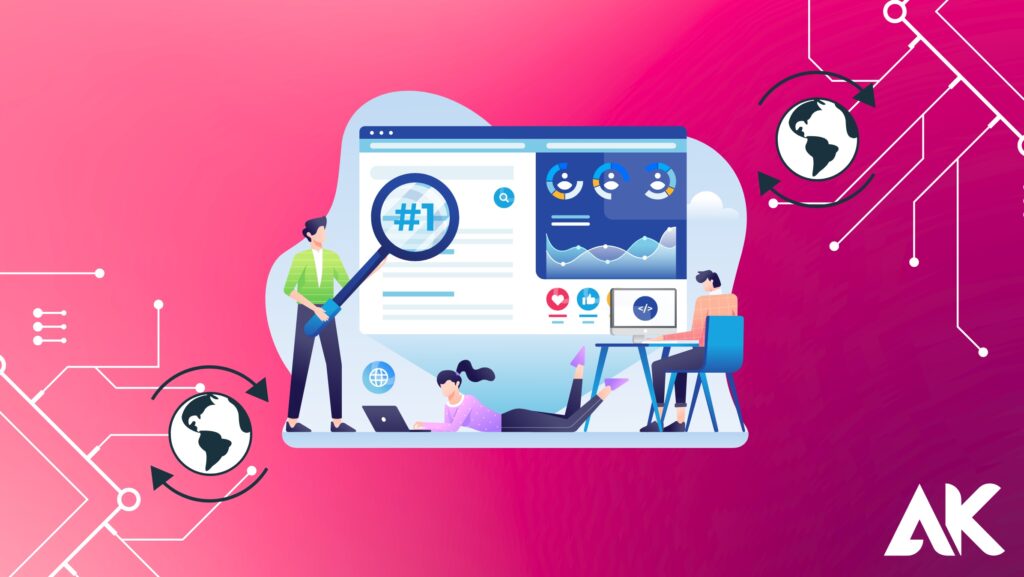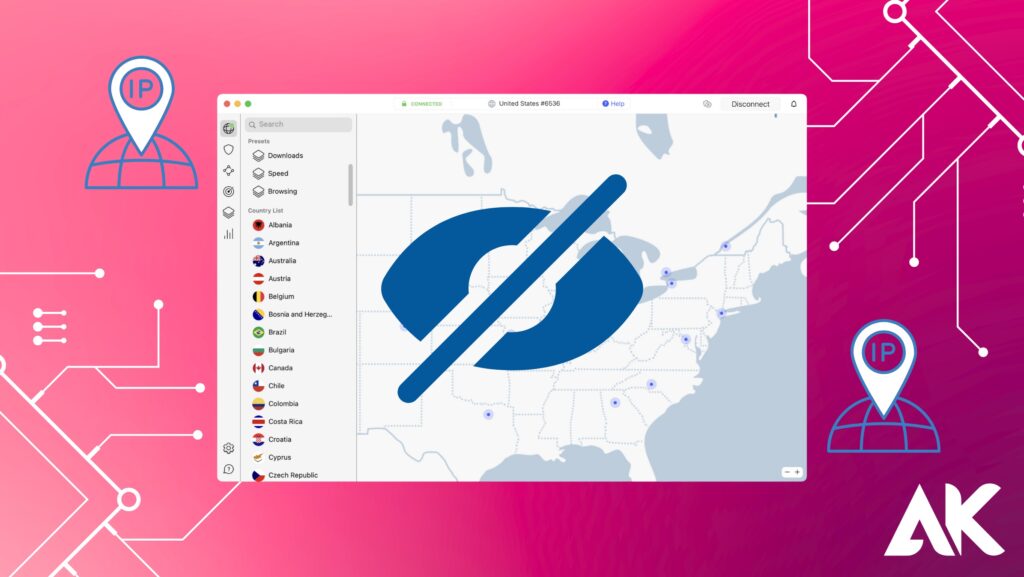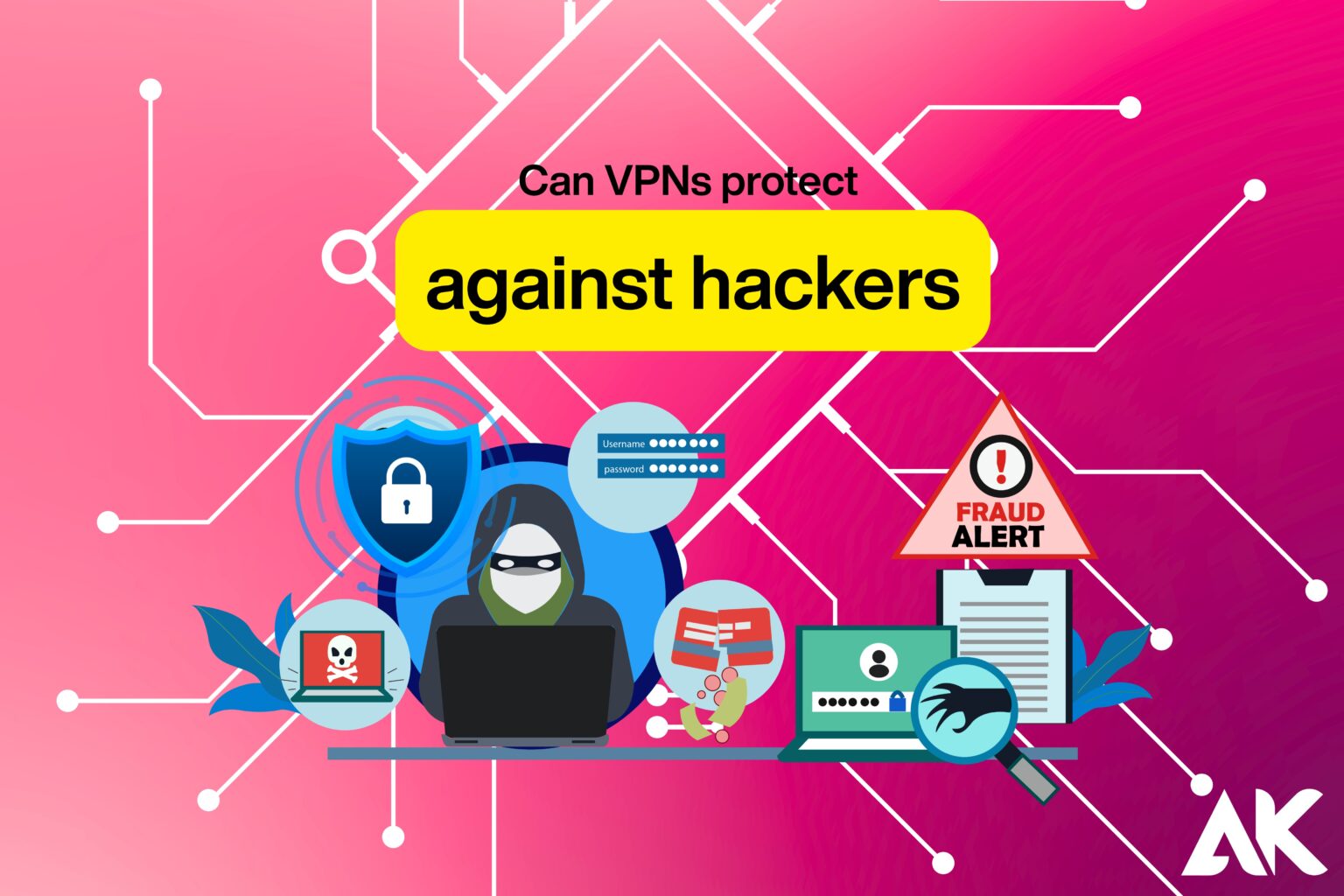Concerned about internet data theft by hackers? The good news is that VPNs can assist, so you’re not alone. Can VPNs protect against hackers? They can, indeed. By encrypting your internet connection, a Virtual Private Network (VPN) makes it far more difficult for hackers to monitor your online activities or steal personal data.
In this blog post, we’ll address that crucial query and dissect 7 potent methods VPNs defend against hackers. How can VPNs protect against hackers? It is essential for remaining safe, whether working remotely, shopping online, or utilizing public Wi-Fi.
This tutorial is for you if you’re looking for straightforward answers on VPN protection. Let’s examine how a VPN protects your online life and keeps hackers away.
Why Hackers Target Unprotected Devices

Before diving into how VPNs help, it’s important to understand why hackers are successful in the first place. Hackers often exploit:
- Unsecured public Wi-Fi networks
- Weak or reused passwords
- Unencrypted connections
- Lack of firewalls or outdated antivirus software
- Vulnerable apps or software
With a VPN in place, many of these vulnerabilities are either minimized or completely neutralized.
1. Encrypts Your Internet Traffic

How Encryption Stops Hackers
One of the core functions of a VPN is encryption. It wraps your internet traffic in a secure tunnel, making it unreadable to anyone trying to intercept it.
Why It Matters
Hackers use tools to spy on data being transmitted over networks, especially public Wi-Fi. Without encryption, your emails, passwords, and banking info are easy targets. A VPN changes that.
Key Benefits of VPN Encryption:
- Scrambles data to prevent interception
- Shield sensitive activities like online banking
- Works on all types of connections, especially unsecured ones
2. Hides Your IP Address

Your IP Address is a Digital Identifier
Hackers often use your IP address to track your location, scan your network, or launch DDoS (Distributed Denial of Service) attacks. A VPN hides your actual IP by routing traffic through its secure servers.
Why It’s Important
When your real IP is hidden, attackers can’t easily trace you or attack your device directly.
With a VPN, your IP becomes anonymous, blocking hackers from using it as a doorway to your system.
3. Secures Public Wi-Fi Connections
Public Wi-Fi Is a Hacker’s Playground
Cafes, airports, and hotels offer free Wi-Fi, but most of these networks are unsecured. Hackers often set up fake access points or use packet sniffers to steal data from unsuspecting users.
How a VPN Defends You
A VPN encrypts all your traffic, even on public networks. This means:
- Hackers can’t read your data
- Fake Wi-Fi networks become ineffective
- You stay safe even on the go
Using a VPN on public Wi-Fi is one of the simplest and most powerful ways to stay secure.
4. Prevents Bandwidth Sniffing and Man-in-the-Middle Attacks
What Is Bandwidth Sniffing?
This is a method where hackers capture unencrypted traffic moving between your device and the web. It’s how sensitive information gets leaked.
How VPNs Prevent These Attacks
A VPN’s encryption renders sniffed data useless. It also prevents man-in-the-middle (MITM) attacks, where hackers intercept communication between you and the websites you visit.
VPNs Stop MITM Attacks By:
- Encrypting both incoming and outgoing data
- Verifying server authenticity
- Blocking unauthorized data interception
5. Avoids ISP Tracking and Data Collection
Your ISP Can Be a Weak Point
Even your Internet Service Provider (ISP) can collect and potentially share your browsing history. This data could be accessed by hackers if the ISP’s security is breached.
VPNs Protect Your Privacy
When you use a VPN:
- Your ISP can no longer monitor your traffic
- Your data is routed through the VPN, not your ISP
- The risk of third-party breaches drops dramatically
This reduces your data exposure and limits what can be stolen in a hack.
6. Stops Geo-Targeted Malware and Phishing
How Hackers Use Location-Based Attacks
Some malicious websites display phishing popups or ads based on your IP’s geographic location. These traps are designed to mimic local services and steal your data.
VPNs Mask Your Location
By hiding your IP and choosing remote servers, VPNs:
- Disrupt location-based malware delivery
- Make phishing attempts less targeted
- Reduce the success rate of attacks
Even sophisticated hackers have a harder time crafting custom attacks if they can’t pinpoint your location.
7. Adds an Extra Layer to Your Cybersecurity Stack
VPNs Work With Other Tools
While a VPN isn’t a complete security solution on its own, it complements antivirus software, firewalls, and password managers.
Layered Security Is Best
Think of a VPN as one piece of a larger puzzle. Together with other cybersecurity tools, it:
- Covers vulnerabilities that antivirus might miss
- Blocks network-level threats
- Creates a more secure online environment overall
Comparison Table: VPN Protection vs. Common Hacking Methods
| Hacking Method | Risk Without VPN | Protection With VPN |
|---|---|---|
| Public Wi-Fi Sniffing | High | Strong encryption prevents access |
| IP Address Exploitation | High | VPN hides real IP |
| Man-in-the-Middle Attacks | Medium to High | Encrypted tunnel blocks access |
| ISP Data Breaches | Medium | Traffic hid from the ISP |
| Geo-Targeted Malware | Medium | VPN masks location |
| DDoS Attacks | High (especially gamers) | Hidden IP protects against attacks |
| Data Harvesting via Tracking | Medium | VPN reduces tracking drastically |
Bonus: When VPNs Are Not Enough
While VPNs offer powerful protection, there are limitations. To stay fully secure, consider these extra tips:
- Use strong, unique passwords with a password manager
- Enable two-factor authentication on all accounts
- Keep your software updated to patch known vulnerabilities
- Avoid suspicious links and downloads
A VPN is a powerful defense, but cyber hygiene is just as critical.
Final Thoughts: Can VPNs Protect Against Hackers?
So, can VPNs protect against hackers? Of course. By encrypting your data, hiding your identity, and protecting your connection, VPNs offer a strong line of protection, particularly while utilizing public Wi-Fi or gaining access to sensitive accounts.
However, remember that no single tool offers 100% protection. When paired with smart online habits and additional cybersecurity tools, a VPN becomes an essential part of your digital safety strategy.
Summary: 7 Powerful Ways VPNs Protect Against Hackers
Here’s a quick recap of the 7 ways VPNs help defend you:
- Encrypt your internet traffic to stop eavesdropping
- Hide your IP address to stay anonymous
- Secure public Wi-Fi use and block fake networks
- Prevent sniffing and MITM attacks
- Block ISP tracking and data exposure
- Stop geo-targeted malware and phishing
- Add another layer to your cybersecurity stack
You may significantly lower your chance of falling prey to hackers by regularly utilizing a VPN and combining it with wise online conduct. Regardless of whether you operate remotely or are a casual browser, this robust application should be part of your cybersecurity toolbox.
Are you prepared to remain safe? Take charge of your internet privacy by utilizing a trustworthy VPN right away.
FAQs
Question: Can VPNs protect against hackers on public Wi-Fi?
Answer: Yes, VPNs protect against hackers on public Wi-Fi by encrypting your internet traffic, making it unreadable to anyone trying to intercept your data.
Question: Can VPNs protect against hackers during online banking?
Answer: Absolutely. VPNs protect against hackers by securing your connection with encryption, helping keep sensitive banking details safe from cybercriminals.
Question: Can VPNs protect against hackers completely?
Answer: While VPNs protect against hackers by hiding your IP and encrypting data, they’re most effective when combined with strong passwords and updated software.

